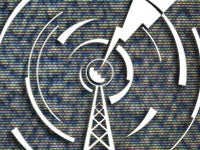 |
The U.S. switch to digital television signals will be delayed four months until June under legislation that cleared Congress on Wednesday and now goes to President Obama for his signature into law.
Obama supports the delay, sharing concerns that 20 million mostly poor, elderly and rural households were not ready for the congressionally mandated switch.
The bill delaying the changeover to June 12 from Feb. 17 cleared the U.S. House of Representatives in a 264-158 vote and followed Senate passage last month.
About 13 million people hold expired $40 coupons the government was providing to offset the costs of converter boxes needed for older televisions, according to Consumers Union. The government ran out of coupons last month and millions of requests for coupons are pending.
“We believe it is irresponsible to ask mostly rural, or elderly consumers to reach into their own pockets to deal with this transition when many folks, including the federal government, are making a profit,” said Joel Kelsey, a policy analyst at Consumers Union.
Airwaves to be vacated by television broadcasters after the switch were purchased mostly by AT&T and Verizon Communications in an auction that raised about $19 billion for the U.S. government.
Both companies agreed to a short, one-time delay and their licenses will be extended under the bill.
For the most part, only viewers with older sets that receive broadcast analog signals and do not get cable or satellite television, must act to prevent their screens from going black after the switch.
Most Republicans opposed the delay, arguing it would create more confusion after years and millions of dollars had been spent by the government and private industry to advertise the February switch.
FCC Acting Commissioner Michael Copps said earlier this week the agency had been working on a “plan B” in case Congress extended the deadline.
Cable, broadcast impact
The two largest cable companies, Comcast and Time Warner Cable, have said they see an opportunity to add new subscribers who in the past might not have taken pay-TV services.
The nation’s nearly 1,800 full-power television stations can switch to digital early if they notify the FCC and the public under the bill.
But most consumers do not have to worry about losing channels, according to a broadcast industry source.
“For competitive reasons, I think most stations won’t go early,” the source said, noting “sweeps week,” which sets rates for some advertisers, is in March.
One company actively opposing the delay was Qualcomm, which paid about $550 million to use the vacated spectrum to extend a roll-out of its mobile video service.


